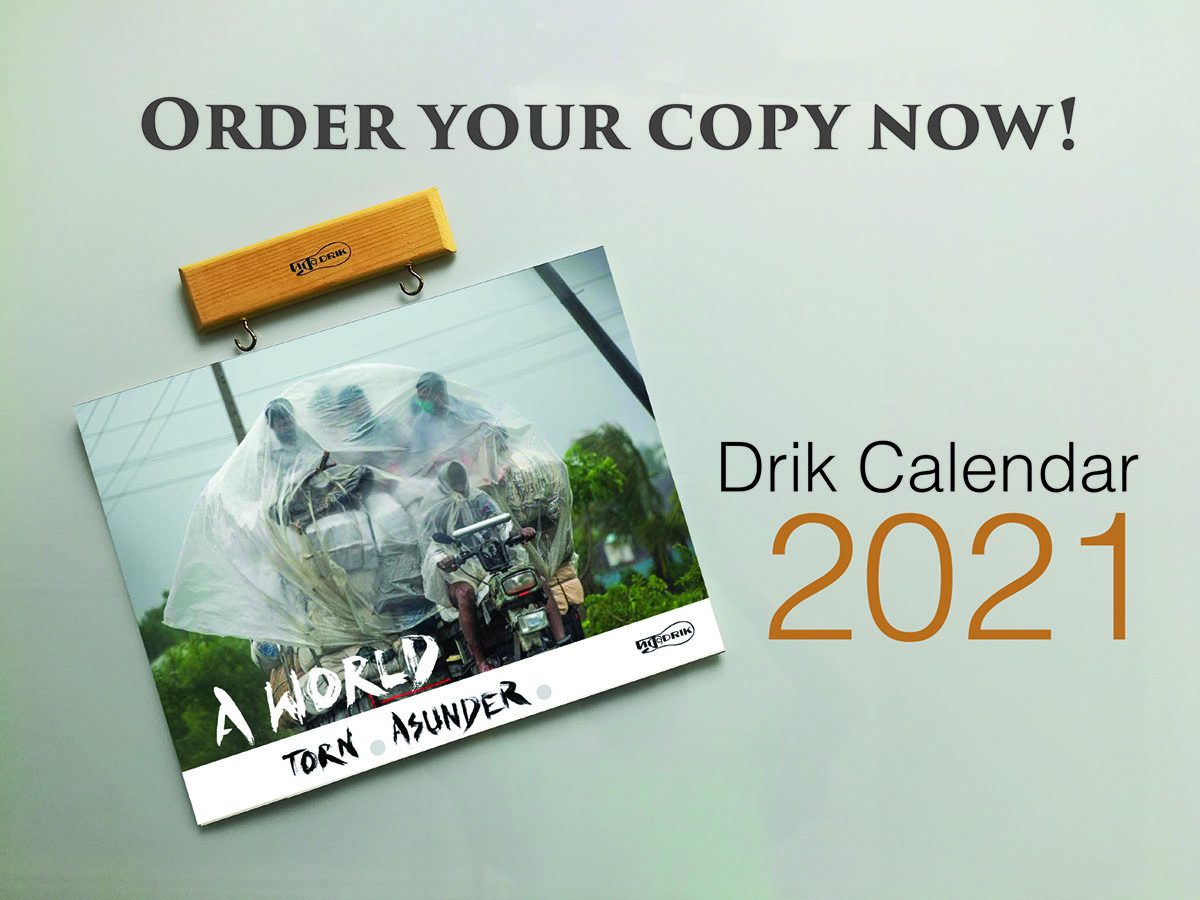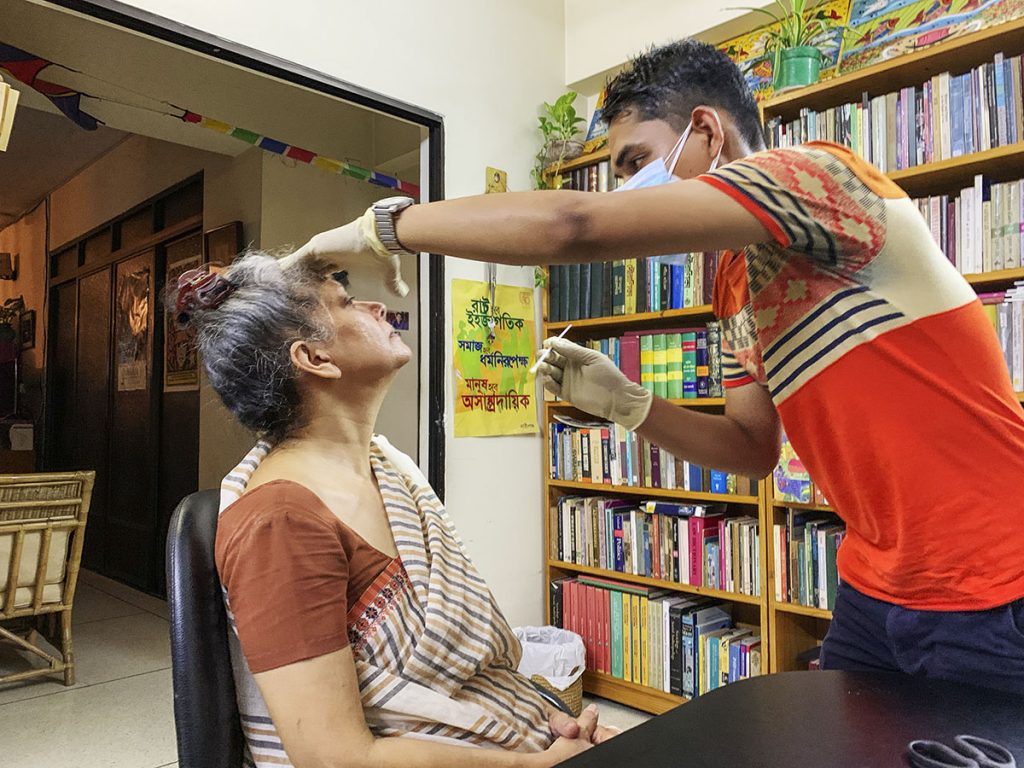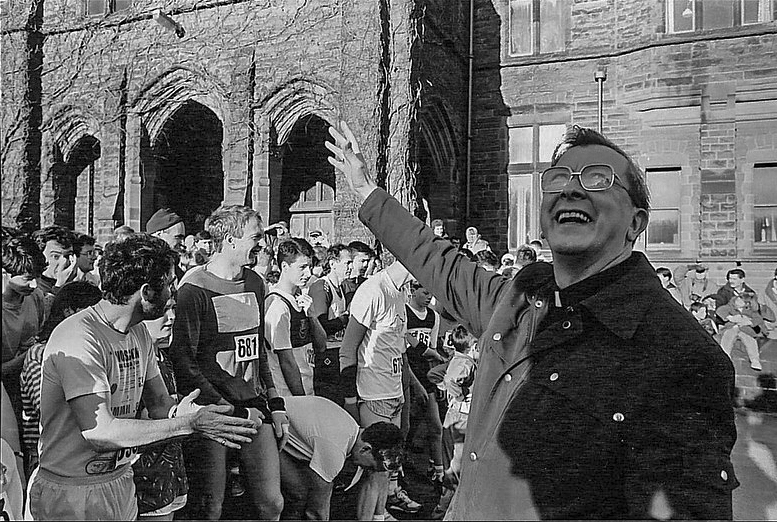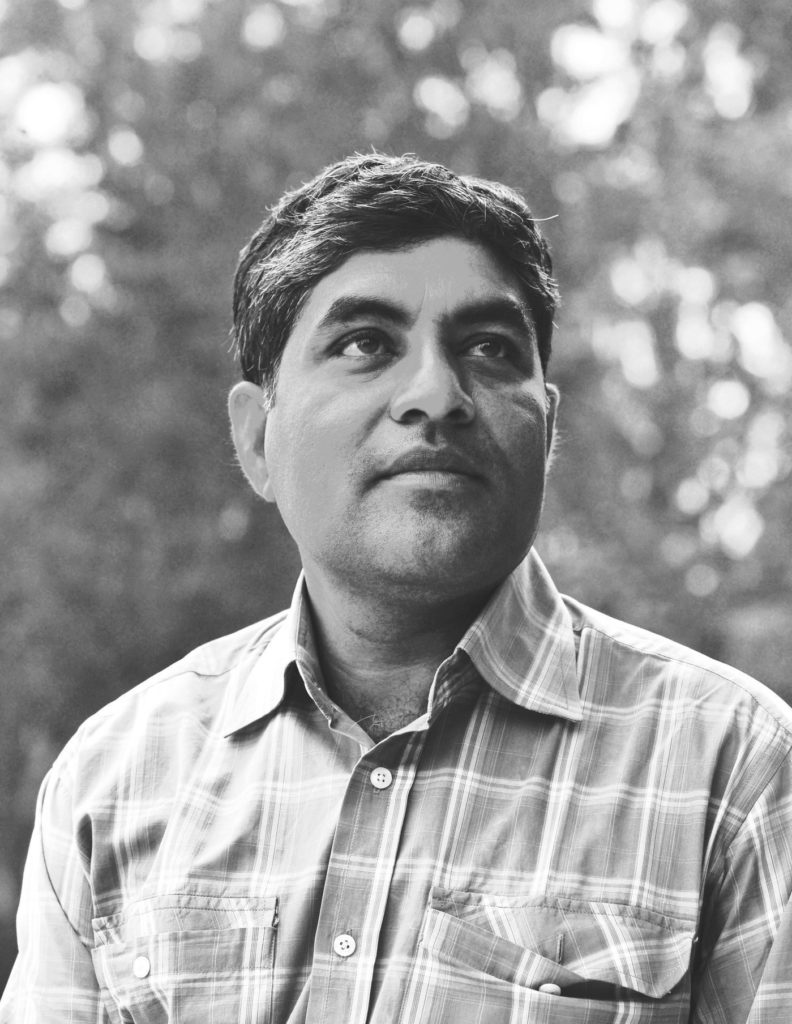Shahidul Alam
It’s not a good time for huggers. A virus rips through our social fabric. Distraught children distanced from dying parents. Loved ones unseen, untouched, in sterile cabins. Lovers unable to hold hands. Kids separated from school friends. Smiles hidden by masks. Everyday acts of sympathy and endearment buried under the cosh of lockdown. Torn asunder by a tiny microbe it’s a world like no other.
There are many faces to this pandemic. There have been acts of great generosity by individuals of limited means. Acts of grotesque deceit and corruption by individuals with plenty. The lockdown has also led to clearer skies, cleaner air, quieter streets. Moments of repose. Families together again with time for children.
Some have profited from the virus. Repressive regimes have put in place rules that citizens would rebel against in normal times. COVID-19 has become the Trojan horse used to smuggle in unacceptable practices in the guise of public health.
Globally, chest thumping leaders have used the opportunity to put personal gain way above national or global interest. Sickeningly, a billionaire earned in a day almost as much as every man, woman and child in Bangladesh would have collectively earned in a month had they received a minimum basic wage. The poor have been robbed to amass wealth for the rich.
Those
who live hand to mouth, can hardly choose not to work. Death by starvation
is no better a choice to death by disease. But it’s a complicated story.
The rate of infection in Bangladesh is undeniably lower than might have
been expected given the living conditions of the poor and the lack of
access to decent medical care. The mystery of lower death rates in Bangladesh
cannot be explained easily, limited tests notwithstanding. The woefully
poor infrastructure, the rampant corruption in the health sector and
the impossibility of the poor to physically distance themselves
from each other, would suggest a much higher rate of infection
than appears to be present. Many more would have had to be
infected for herd immunity to kick in. Has a wave of asymptomatic
infection surreptitiously flooded our nation to leave us relatively
immune? After all, mild symptoms would hardly be something the
poor would fuss over. Their day to day existence requires them to
take illness in their stride. A day off work, is a day without pay.
Perhaps a day without food.
Modelling, R0, flattening the curve and herd immunity, are now everyday chatter. We’ve tried to move away from the jargon, to the lived experiences of people. The ravages of cyclone Amphan on a population already reeling from the pandemic, buffeted against the searing wind, carrying a corpse through flood waters, the pain etched on a face shattered by grief stare through images that straddle less brutal ones. A father finds time to play with his children. A little girl in wonderland, peers from her make belief world. An infant, cries out, not from pain, but the intrusion of strangers for a probe that scares. Like an alien from outer space, a buyer in full protective gear walks his cow home. If sacrifice was ever to have meaning, this would be the moment. A congregation of five, the maximum allowed by the new rules, prays for deliverance. A relief pack balanced on her head, a woman at dusk, perfectly poised, walks an empty street, the loneliness of the street reflected in her eyes. The street devoid of the bustle of trade. The forlorn wait for testing. The anguished return to the homeland. The burial. The pain of a nation overrun by traders who, in connivance with regulators are ready to sacrifice lives for profit. Protesting garment workers, huddled against the rain, punished for the temerity of demanding wages due.
But resistance continues. While established artists have long sold out, the youth of the land still yearn for freedom. Through songs, poetry and art, they rally against the wrongful arrests, the torture, the disappearances and the ‘crossfire’, which the virus has failed to stem.
Shahidul Alam




 Nahida Ashrafi. Photo: Rahnuma Ahmed
Nahida Ashrafi. Photo: Rahnuma Ahmed Running down the street as she cries for food, Dhanmondi. — Shahidul Alam/Drik/Majority World
Running down the street as she cries for food, Dhanmondi. — Shahidul Alam/Drik/Majority World Zafrullah Chowdhury (born December 27, 1941) is a Bangladeshi public health activist. He is the founder of Gonoshasthaya Kendra (meaning the People's Health Center in Bengali), a rural healthcare organisation. Dr. Chowdhury is known more for his work in formulating the Bangladesh National Drug Policy in 1982. Photo: Shahidul Alam/Drik/Majority World
Zafrullah Chowdhury (born December 27, 1941) is a Bangladeshi public health activist. He is the founder of Gonoshasthaya Kendra (meaning the People's Health Center in Bengali), a rural healthcare organisation. Dr. Chowdhury is known more for his work in formulating the Bangladesh National Drug Policy in 1982. Photo: Shahidul Alam/Drik/Majority World